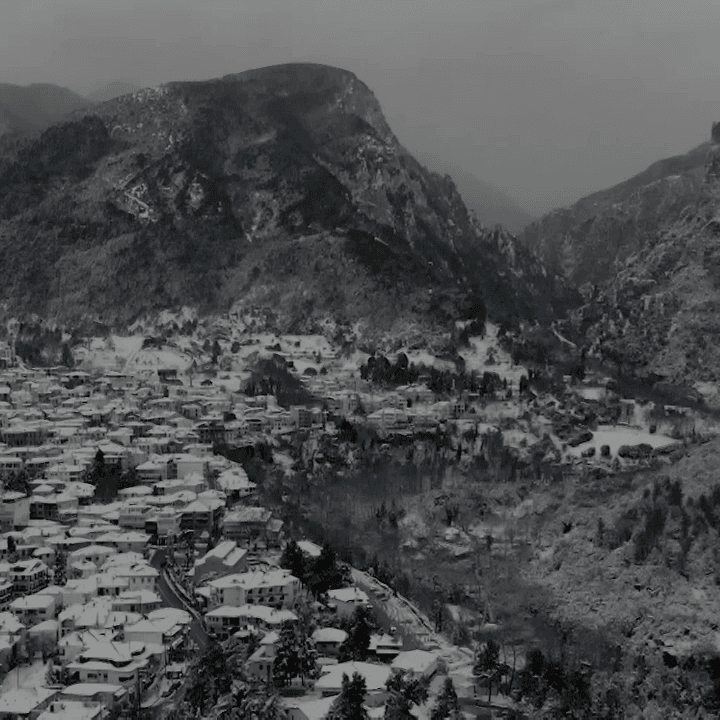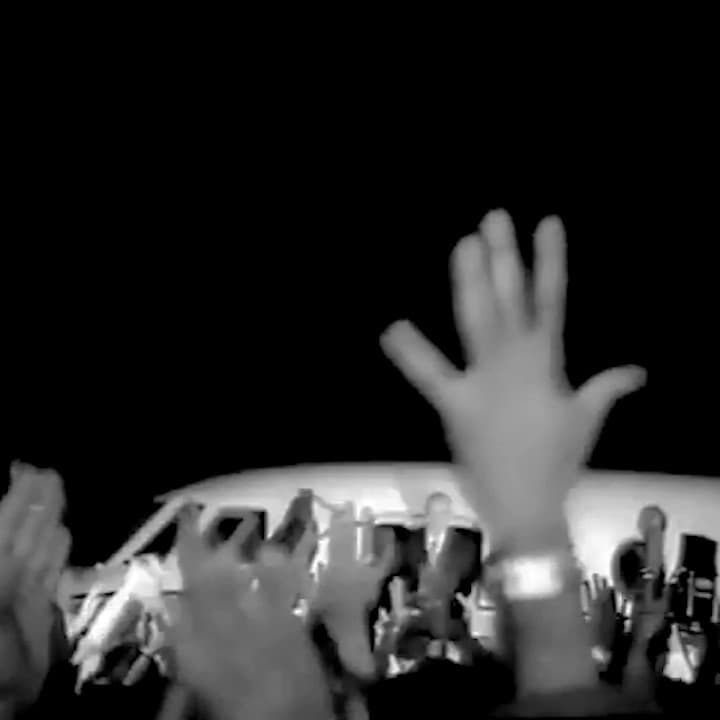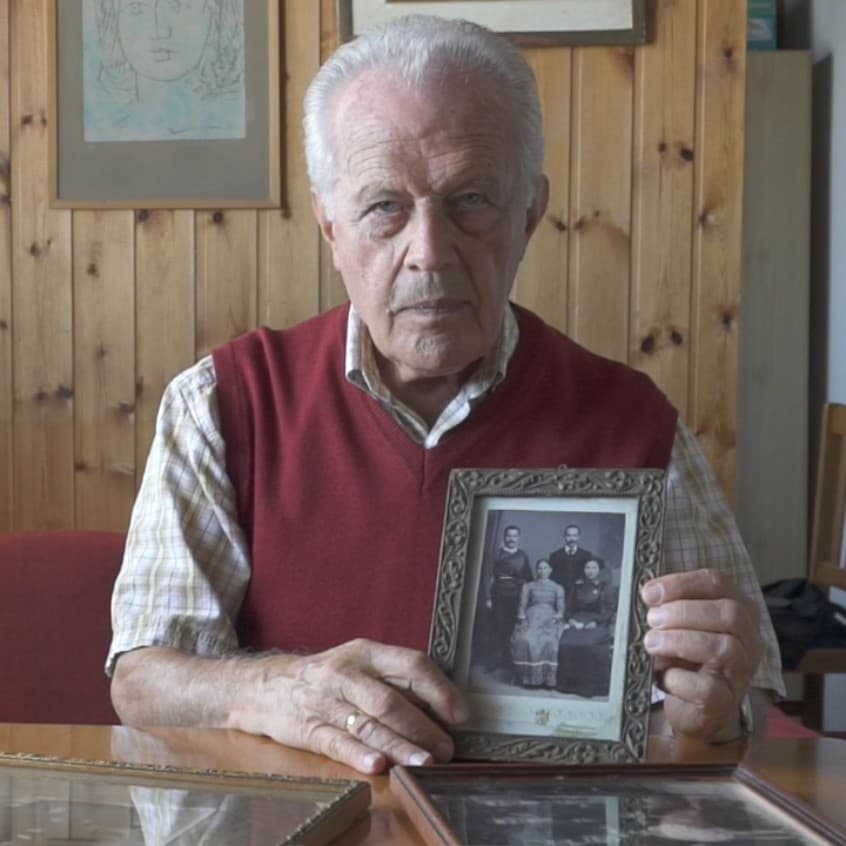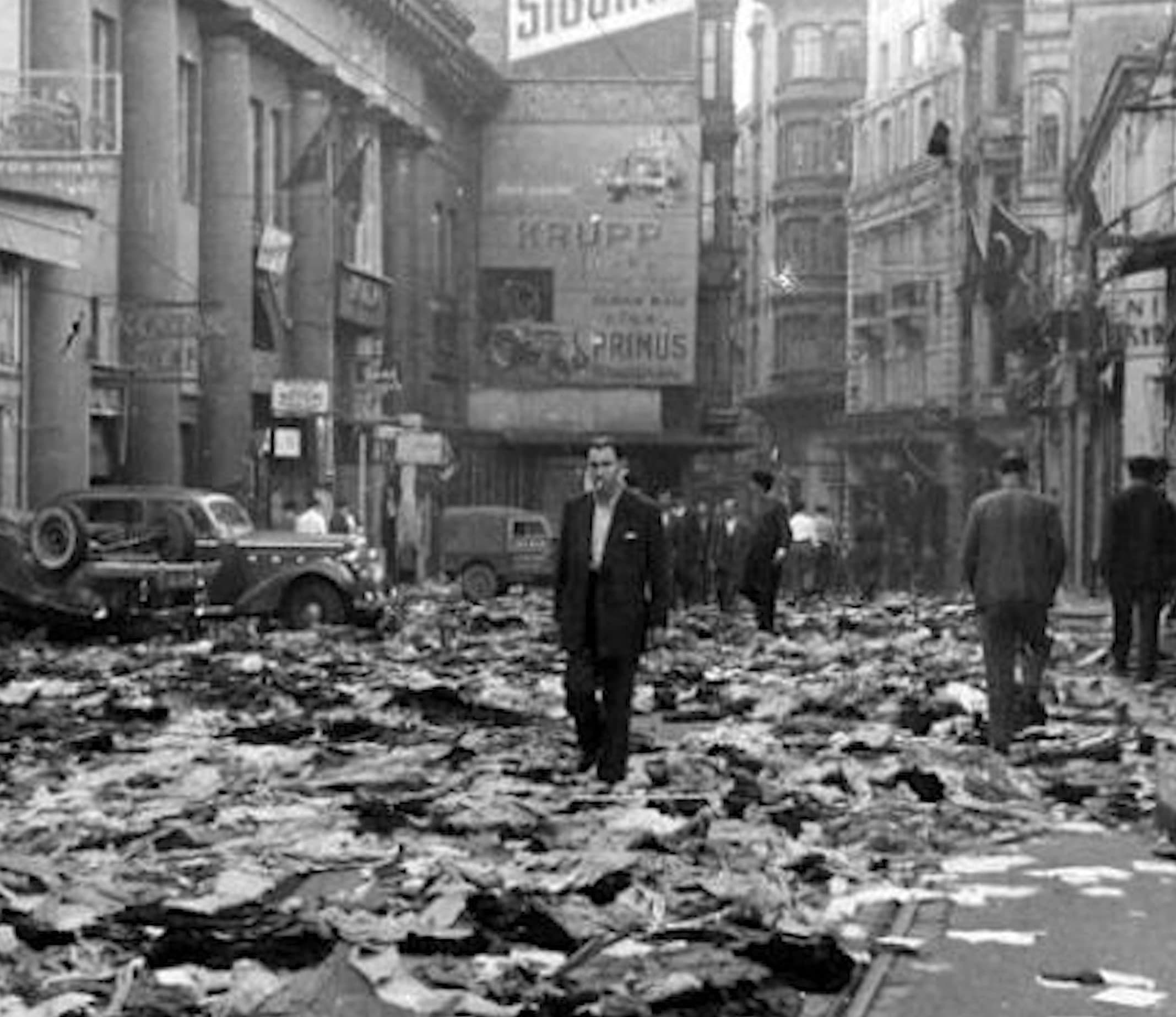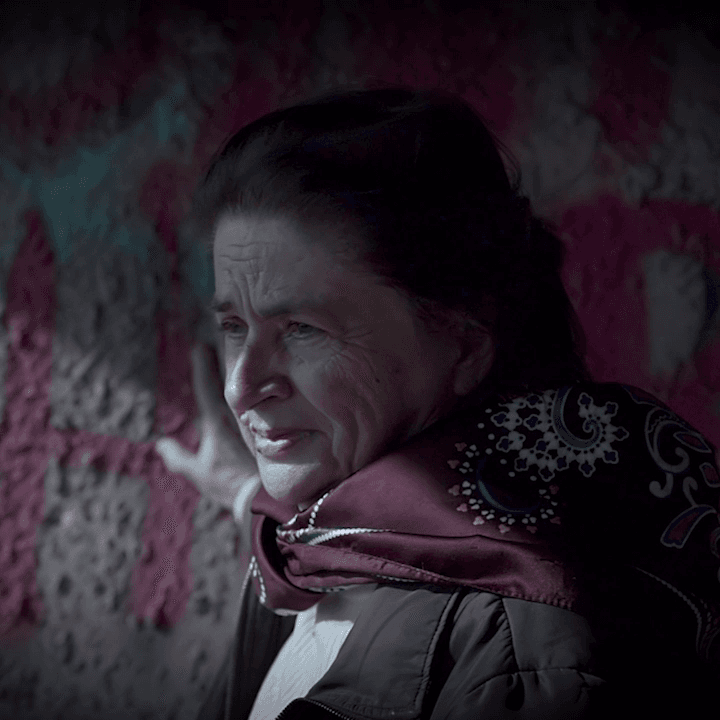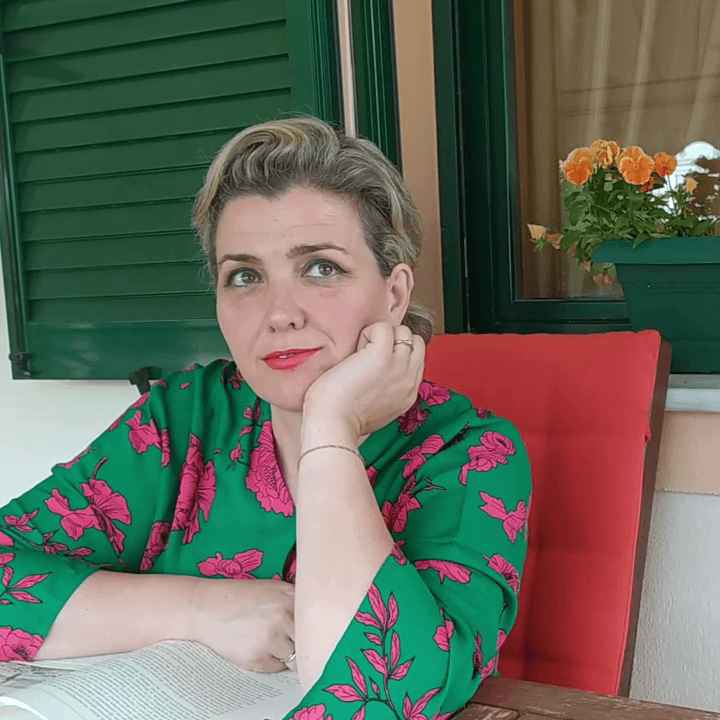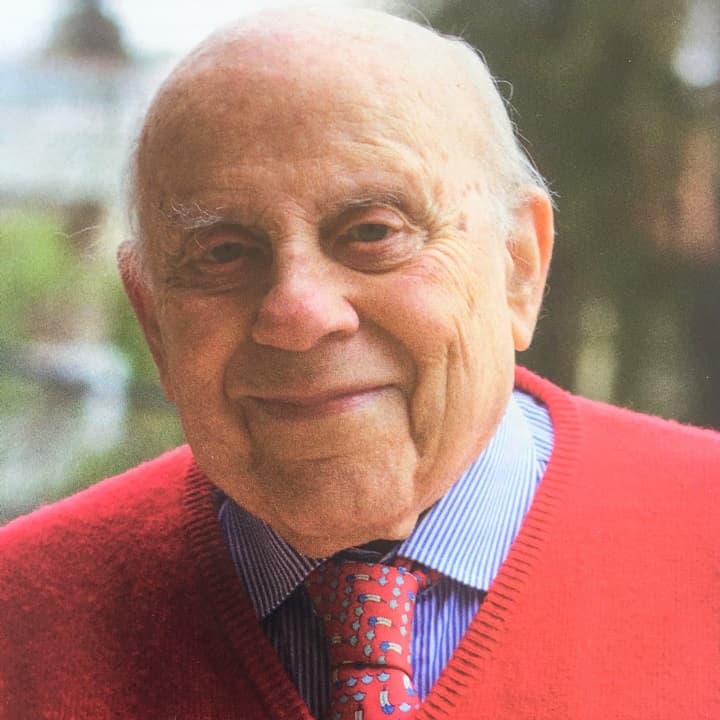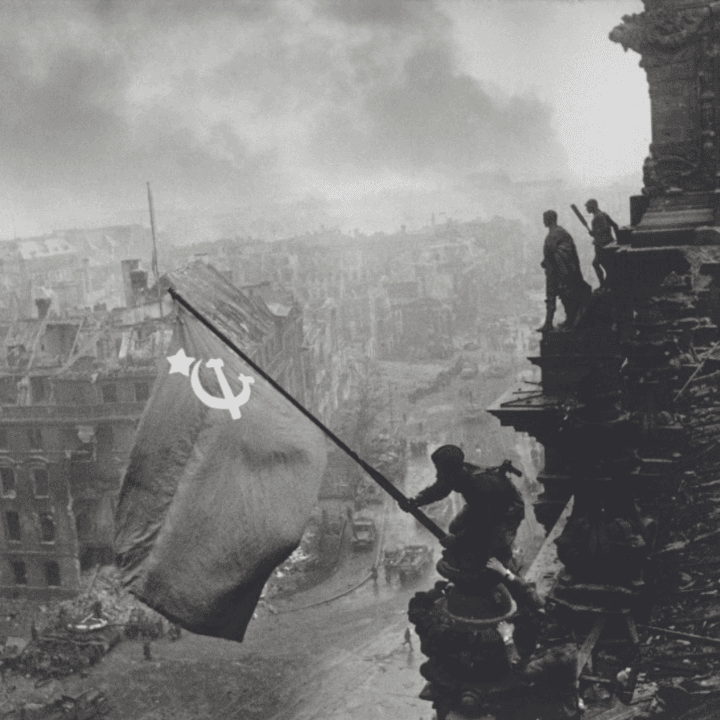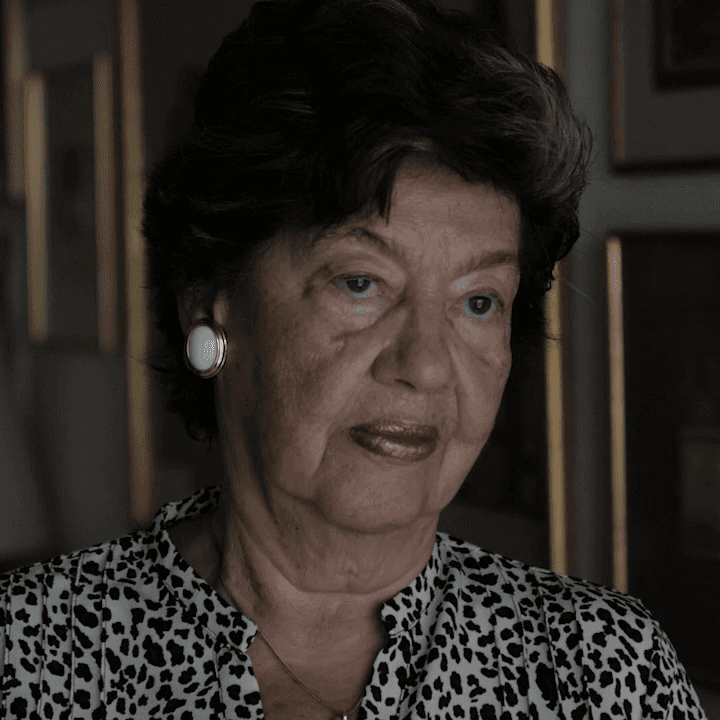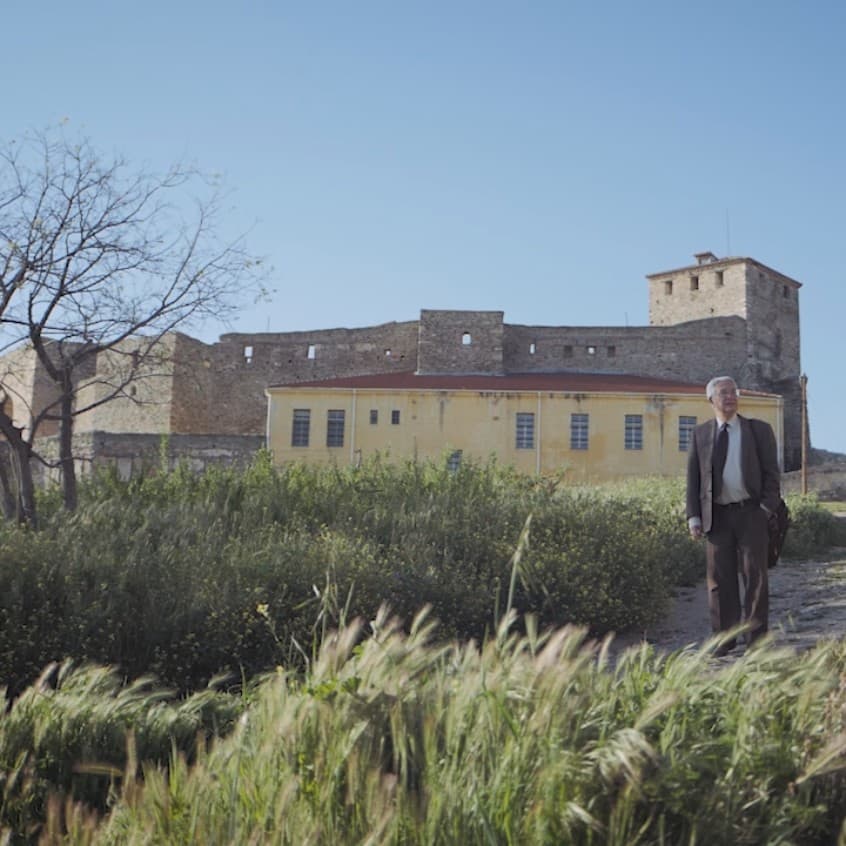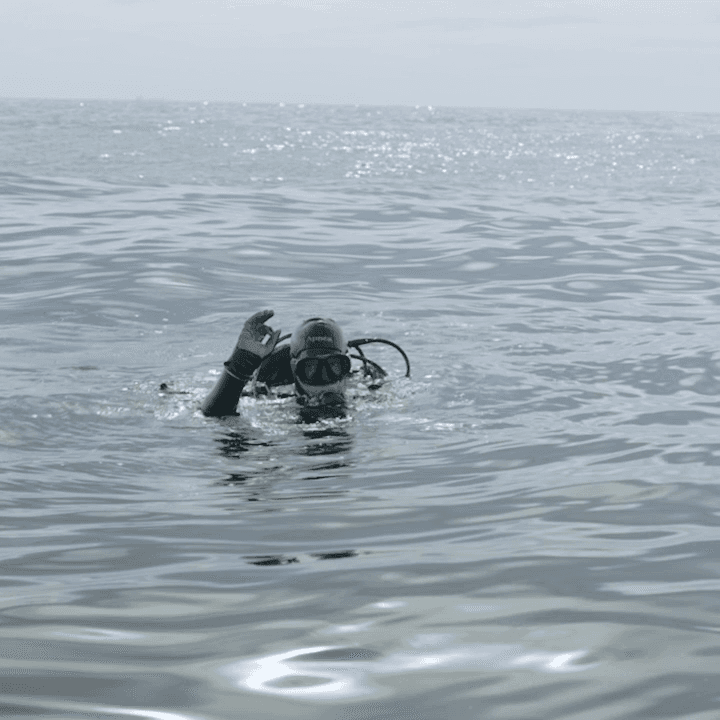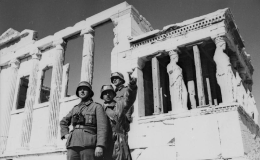Litochoro, my birthplace, is a blessed place. We were born and lived on Olympus, inside the light of Olympus, and as young kids we used to say that if the Gods came here to live, it means that our place is blessed.
The German occupation came. One sunny day of April 1943, when I was playing in the yard of my house, the airplanes started passing by overhead and buzzing. Stukas, stukas, airplanes, airplanes... At first we saw them, us youngsters, and said: “Oh! Airplanes!” After a while however, a town crier came to Litochoro and said: “Take cover because there will be bombing!”
People started running to go hide in various houses. Our house was newly built even back then in ‘43, and the neighbors preferred to go to it to protect themselves from the bombs.
My nana’s terrifying voice sounded, who came and shouted: “What are you sitting in here for? Quick, quick, let’s go to Olympus and hide! They bombarded the monastery!” And we kids wondered: “But what did the Saint do to them and they went and bombarded Saint Dionysios?” The people who were sheltering in my house started to go uphill. Our nana said: “Go, go, go!” She took us and we left.
It hadn't been more than five minutes, we were a hundred meters away from the house, when we heard this “BANG!” It was a terrible, terrible... it wasn’t a sound, it was something unmistakably catastrophic... We all dropped down, right where we were, in the road and we felt that rocks were falling on us, roof tiles were falling, dust was falling.
It had been a while, when we started to raise our eyes and our head a little, to see what had in fact happened. We turned downhill and we looked back to make out our house. And our house was no longer there. It was a heap of rocks, planks, tiles. And where our house used to stand, there was now a pit - as we called it -- a big one, which had been opened up by three bombs that fell in our neighborhood.
We started crying. We stayed there and grieved. “Why our house? Why our corner?” They said then that they supposedly had wanted to bomb the school. Because they had learned from bad informants that the guerrillas were in the school. And our house was behind the school, and we found ourselves in this terrible disaster.
My younger sister hadn't come back from school yet! We started calling, screaming and we all wanted to go down towards the house, but we heard: “Mother! Mother!” The voice of my younger sister. When we left the house, Nana had been responsible for locking the door, so that the girl wouldn’t go inside the house and stay in the house. Nana. She was the one who saved everyone.
So we took the road towards the Enipeas gorge to take cover, to hide in the Olympus caves, and to put their families there and save what they could.
My father was a hard-working carpenter and worked in a village nearby. When my father came from a nearby area where he was working, he hugged everyone and told us: “Are we all saved?” Are we all saved? We were all saved. Fortunately, we only lost the house. OK, we are all alive. This was a very significant moment of my childhood. We were alive, and that was our main and big achievement. To be alive.
We lived for some time on Olympus. We came down again, to live... where? That was our great tragedy. With what? What clothes? What things? What objects of our daily life? There was nothing.
These were hard times. The state had started giving us a piece of bread, a square which was barely twenty-by-twenty centimeters for an entire family. Us four brothers would go to get the ration, the square bread, and by the time we got back home we would have cut the corners off, turning the square into a circle. And we went home and our mother would beat us, because we had eaten that one bit of bread and we deprived the rest of the family of it for the entire day. We were truly hungry.
We would go then, and sit there at the church's narthex and we had a little plate and sat there. And the sexton would hand out the wheat, the kolyva mixture which the women took to the priest to be blessed for the dead - and there were so many dead - and we would say then: “Give us two bits of wheat”, so he would give us a spoonful of kolyva. And this wheat had a bit of sugar in it sometimes. What pleasure that was! It was the greatest pleasure. “Give us two bits of wheat.” And with these two bits of wheat, we survived! Do you realize what this “we survived” means for us?
We played at Panagia church, in the churchyard, with a rag ball, and after we rested a bit at night, we looked at the stars and the poor things, we would chase the shooting star, to say our wish. “What wish should we say? What wish?” “Candy!” said one, “Sugar!” said the other, “Bread!” said the other, “Milk!” said the other. I only said “Happ- .” And my playfellows and buddies made fun of me: “Hey, what happ- is he talking about? What happ- are you blabbing about?”
We frequently saw these flashes but it was not the rays from the shooting stars. It was the light from the flares and the various other fires -- they were shooting and bombarding and killing. “What happ- is he blabbing about?” I said: “Hey, I wanted to say “happiness”, but I didn’t finish...”
Starting in late ‘49 and early ‘50 things changed. They built a High School for us! And we changed our dreams. No more apprentice for my father, who I would help when I was a kid, when I would go after school and do woodwork with him and carry lime until I finished Primary School.
I said: “Father, I want to go to High School!
“Son, why on earth would you go to High School? To do what? How can we get you through school?”
I said: “That's ok, let me go, let me go, let me go...” My father was convinced and he let me go.
Back then, we had to pay for teachers - the state sent one teacher and we paid the others ourselves - so I became a very good student in order to save money, because anyone who got a good grade, did not have to pay the contribution.
And I sat for the exams and I got into University in '56, and I became a philologist and I tried to teach the kids as best I could. And I now say, thank the All Mighty, my wish came true, the one I kept saying to the shooting star: “Happiness”.
What was said back then, prevailed: “We are all saved”, we are all saved. Are we all alive? We are alive! Life is enough for me. I defend life and I celebrate it. Life is a wonderful gift! Isn’t that so?
